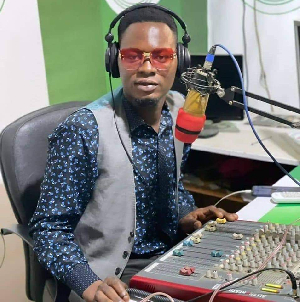
Abuakwa North's renowned journalist, Awal Adam, has sparked a crucial conversation in the media landscape, asserting that journalists who support bad policies of ruling governments are unprofessional. This bold statement highlights the tension between journalistic integrity and political pressure.
Awal Adam's statement comes at a time when the role of journalists in Ghana is under intense scrutiny. With the country's democratic progress hailed as a model for Africa, the media's independence and ability to hold those in power accountable are crucial. However, journalists face increasing pressure to toe the line, compromising their ethical standards and undermining the public's trust.
Journalists in Ghana encounter various obstacles, including censorship, intimidation, and financial constraints. The country's Criminal Libel Law, though repealed in 2001, has been replaced by other laws that can be used to silence critical voices. Furthermore, journalists often face harassment, physical attacks, and even death threats for reporting on sensitive topics. These challenges make it difficult for journalists to maintain their independence and report objectively, particularly when covering government policies and actions.
The consequences of compromised journalism are far-reaching. When journalists self-censor or promote government agendas, the public is deprived of accurate information, and the media's credibility suffers. A 2022 survey by the Ghana Journalists Association found that 60% of Ghanaians distrust the media due to perceived bias. This erosion of trust undermines democracy, as citizens rely on credible information to make informed decisions.
To rebuild trust, media outlets must prioritize transparency, accountability, and diversity. This includes clearly labeling opinion pieces, disclosing conflicts of interest, and promoting diverse perspectives. Journalists should also engage with audiences, respond to criticism, and admit mistakes. Awal Adam suggests, "Journalists must be willing to listen and learn from the public, acknowledging our shortcomings and striving for improvement."
Fact-checking initiatives are crucial in combating misinformation. Organizations like Ghana Fact, Dubawa, and FactCheck Ghana verify claims made by politicians and public figures. These initiatives help hold those in power accountable and promote accuracy. Awal Adam emphasizes, "Fact-checking is essential for credible journalism, ensuring our reporting is grounded in truth, not speculation or propaganda."